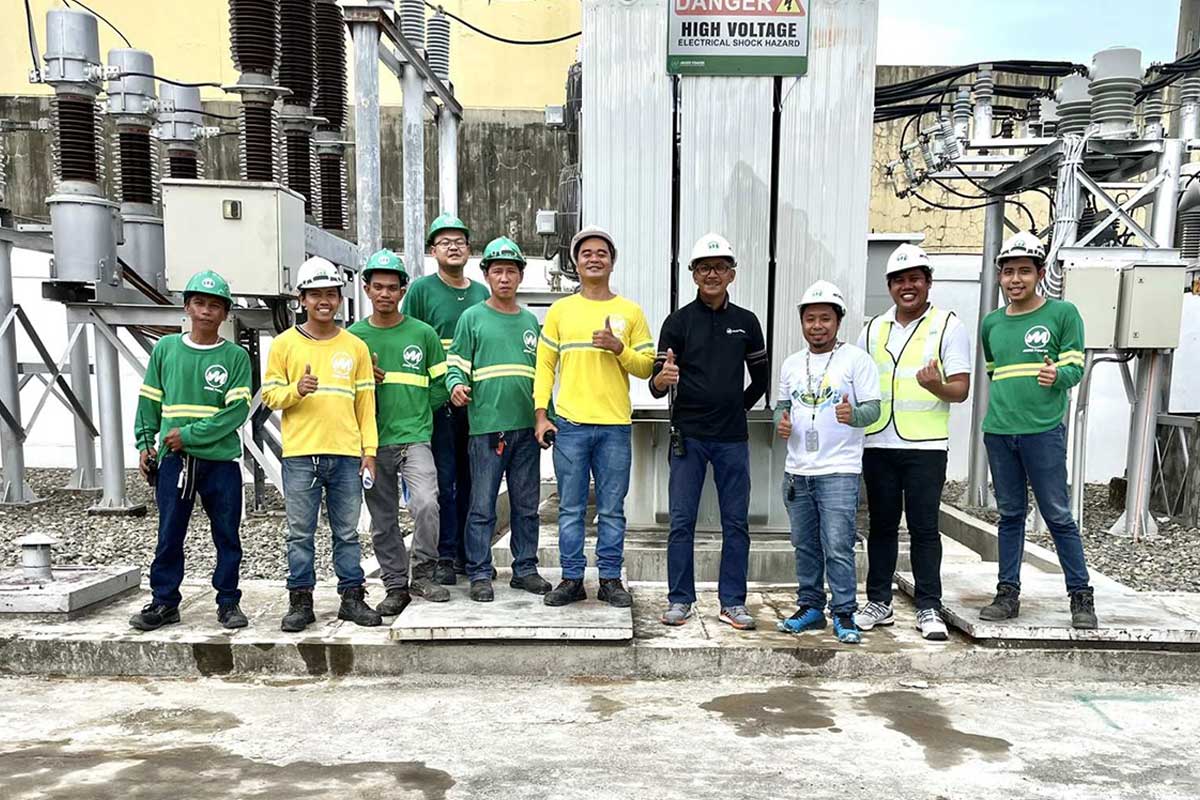
By Francis Allan L. Angelo
The additional P1.1 billion that MORE Electric and Power Corp. will invest in Iloilo City’s electricity distribution grid is also in preparation for the growing demand for electricity as the city tries to rebound from the COVID-19 pandemic.
Engr. Bailey del Castillo, deputy head of network operations of MORE Electric and Power Corp., said the city’s thirst for electricity is evident in the sudden surge on peak demand for power to around 120 megawatts a day.
Del Castillo said they expect the city’s demand for electricity to further increase in the next half of the year as some schools are about to resume face-to-face classes as COVID-19 cases recede.
“The future of the city is bright when it comes to electricity because demand has been increasing since we shifted to Alert Level 1. The demand is seen to go up even more with more economic activities and even face-to-face classes resuming,” he added.
Earlier, del Castillo said their top management approved another P1.1 billion in capital expenditure (capex) for the next three years..
The additional capex of P1.1 billion is on top of the P1.9 billion emergency capex, of which almost P1 billion has been spent since MORE Power took over the city’s distribution services in 2020.
The P1.9-billion budget was used on emergency works such as rehabilitation of substations, replacement of poles and distribution lines, and replacement of transformers and construction of the Banuyao switching station.
The second tranche amounting to P1.1 billion will be primarily allocated to the upgrading of substations which supply electricity from the grid to the city districts in the next three years.
MORE Power has started the construction of new Megaworld substation and uprated the power transformer of City proper substation.
Mandurriao and City Proper are now the fastest growth areas in the city while need to construct a new substation in Arevalo because it is at the tail-end of the grid.
“There will be additional three new substations which are brand new – the new Megaworld substation, the 36 MVA mobile substation from Europe, and the new Arevalo substation. Arevalo is at the far end of the grid, and we need to install a new substation to address the problems of low voltage, systems loss, among others,” del Castillo said.
The other five substations will also undergo rehabilitation and upgrading, which means the old facilities will be torn down and replaced by more modern equipment.
“When we say rehabilitate, we will do ground zero para pagkatapos, lahat bago. Currently, some of the structures are made of wood. The concrete and steel structures are really old. We will still use equipment that are still serviceable but overall, everything will be new,” del Castillo said.
The new mobile station will be deployed to take over the operations of the fixed substations when these are rehabilitated one at a time.
“The mobile substation will first be used when we work on Molo substation then Mandurriao, then LaPaz and Jaro where it will be permanently based,” he added.
To avoid prolonged and widespread outages, del Castillo said they transfer the loads of the substation to other feeders during the rehabilitation works.
“The interruptions will only occur during the switching, but it will not take long. Once the rehab works start, electricity will continue to flow,” he added.
Del Castillo said they are confident that once the rehabilitation works are finished, the distribution system will become stable and reliable.
“The system will become very robust because it will become a loop already. While we upgrade the facilities, they will be connected to each other. By 2025, our system will be brand new and robust,” he said.
Under the loop distribution system, power supply will continue even if one substation conks out as the supply and feeder lines can be transferred to another in a fast and safe manner.
As to the distribution lines and poles, del Castillo said they still need to replace around 35 percent of the old primary facilities.
“We are now focusing on the lines in the interior parts of the city, especially the secondary lines. But I can see that the city’s future is very bright given that we are now normalizing and our demand is picking up,” he added.
(This story was updated to correct the additional capex of P1.1 billion, not P3 billion as reported earlier.)




















